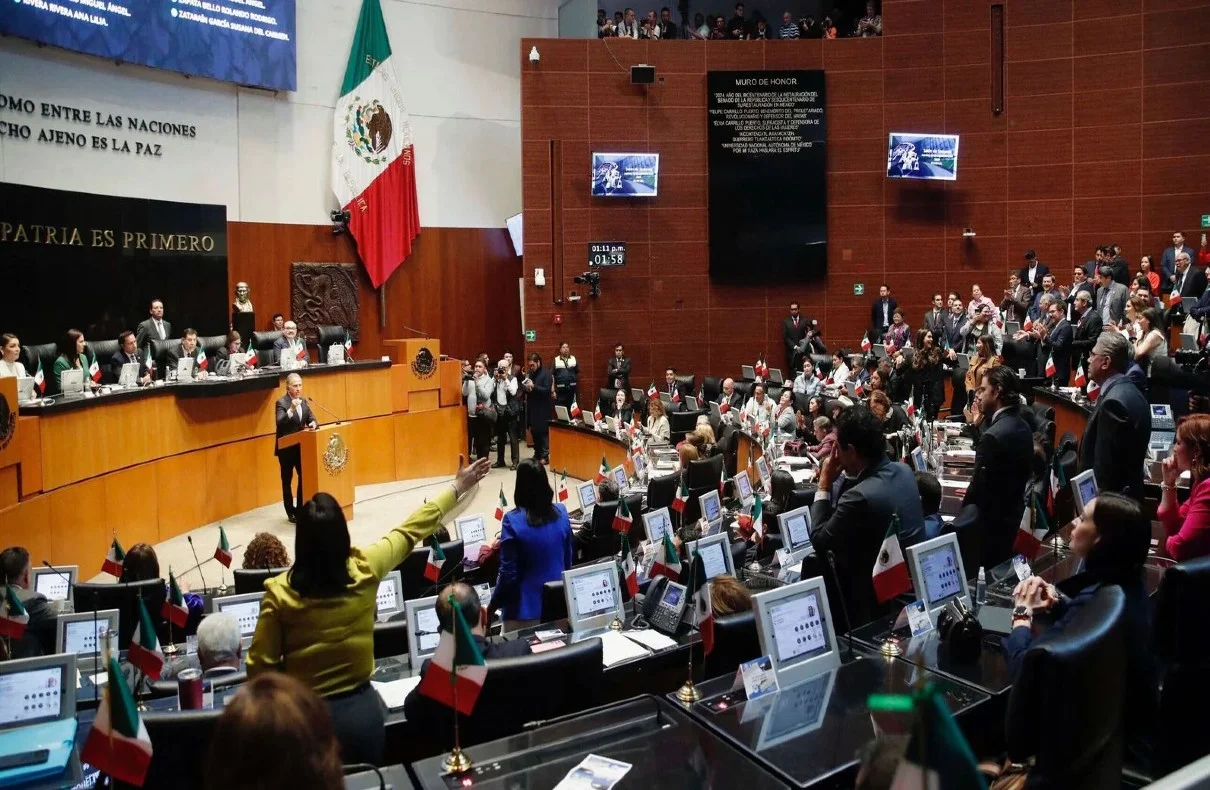The Mexican Senate approved on Thursday an energy reform by the ruling party to give priority to state-owned companies, Petróleos Mexicanos (Pemex) and the Federal Electricity Commission (CFE), so that they have priority over private companies in the generation and dispatch of energy.
In a session that lasted until dawn, the senators approved with 86 votes in favor, 39 against and one abstention, the reform to stop considering Pemex and CFE as “productive state companies,” which will now be “public companies” so as not to “compete on the same level as all private companies.”
The constitutional reform, proposed by former President Andrés Manuel López Obrador (2018-2024), partially reverses the energy reform of the Government of Enrique Peña Nieto (2012-2018) that opened the sector to private investment and forced Pemex and CFE to compete on more equitable terms with private companies.
“It takes firm steps towards the recovery of energy sovereignty, thereby reversing the changes made with the 2013 energy reform, which only sought to dismantle Pemex and CFE,” argued Senator Laura Castillo, of the ruling National Regeneration Movement (Morena).
The reform, approved last week in the Chamber of Deputies and which must now be endorsed by state congresses, has raised alarms in anticipation of the upcoming review in 2026 of the Treaty between Mexico, the United States and Canada (T-MEC), which rejects special treatment for national companies.
But President Claudia Sheinbaum has assured that all current contracts are respected and that there will be working groups to understand how private investors can participate and where they can participate.
The amendment establishes that the CFE will generate 54% of the national electricity without being considered a monopoly, and requires the National Energy Control Center (Cenace) to first dispatch the energy produced in the state-owned company’s plants, even if it is more expensive and polluting than that produced by private companies.
“The reform is regressive, polluting and obsolete, among other factors, for omitting the transition to clean fuels,” denounced Clemente Castañeda, senator of the opposition Movimiento Ciudadano (MC) party, in the debate.
